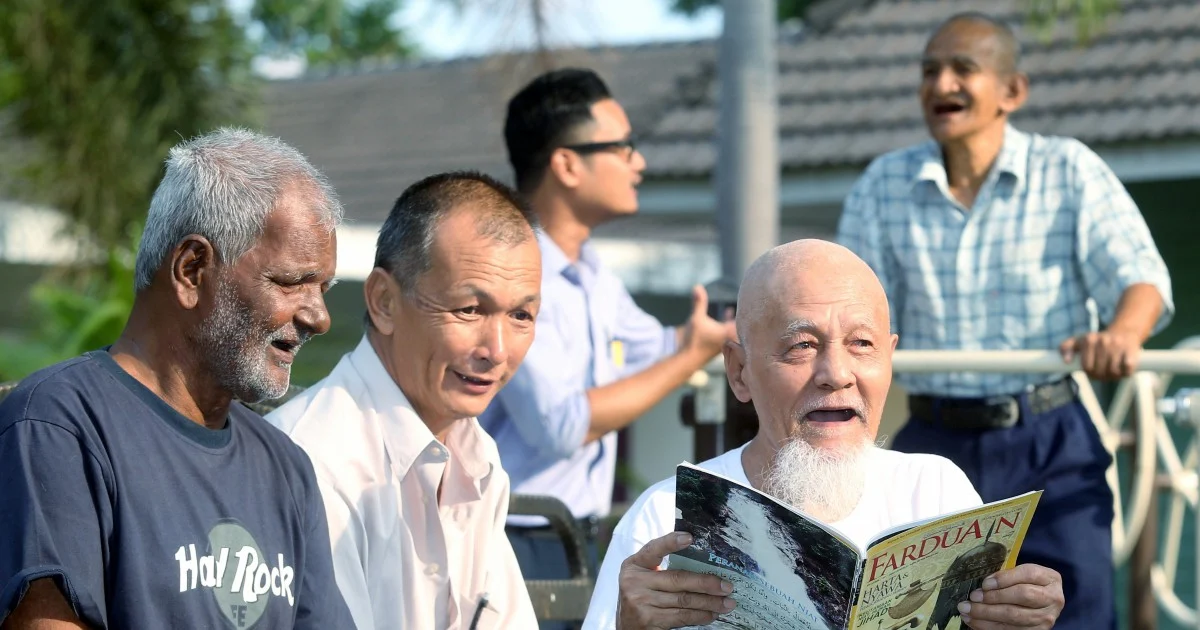OCT 1 marks the UN International Day of Older Persons (UNIDOP), a day to raise awareness about challenges affecting older persons and celebrate the contributions of older persons.
This year’s UNIDOP theme is aptly titled “Resilience of Older Persons in a Changing World”, recognising the need to build the resilience of older persons in the face of a myriad of challenges such as the COVID-19 pandemic, the cost of living crisis and climate change.
As Malaysia is already an ageing nation and will soon be an aged nation by 2044, it has become more pressing than ever to build the necessary infrastructure to ensure current and future older persons live with dignity.
This includes guaranteeing income security during old age, in which the introduction of a social insurance pension is instrumental to address long-standing issues of covering gaps and inadequate savings in the current retirement ecosystem.
Most Malaysians can’t afford to retire
According to the Employees Provident Fund (EPF), considering expected price increases, outpatient medical bills and other necessities, Malaysians would need a minimum of roughly RM600,000 to have a dignified retirement in Kuala Lumpur in the next few years.
Even in the most affordable place to retire Alor Setar, Kedah, a person would need RM480,000.
This is especially shocking when we contrast this with the fact that only 4% of EPF contributors could afford to retire with at least RM600,000 savings.
On the other hand, among contributors aged 54, about half have less than RM50,000, while lump sum withdrawal upon reaching 55 years old in the following year would likely last for about four years (assuming they spend only RM1,000 a month).
With spending shocks such as medical emergencies, RM50,000 is likely to deplete even faster.
61% of working-age folk not covered by retirement schemes
61% of working-age Malaysians do not save in retirement schemes nor have any form of guaranteed income during old age.
In Malaysia, only two elderly groups are guaranteed some income which is tax-funded and does not require individual savings: “poor” elders who are eligible for the Government’s financial assistance for the elderly (Bantuan Warga Emas or BWE) and public sector employees who are eligible for pension.
Others have to rely on individual efforts to save either in EPF or other voluntary saving schemes.
Those excluded from the formal retirement ecosystem are collectively referred to as the “missing middle”: they are not poor enough for BWE, not civil servants entitled to pension or working without employers who can co-contribute for EPF.
The missing middle includes self-employed persons, gig riders, petty traders and agricultural workers as well those not in the labour market such as homemakers and persons with disabilities.
The status quo cannot continue

Those with inadequate savings must find ways to stretch their budget amid rising living and medical costs; the declining prevalence of three-generation households and lower fertility rates suggests that we can no longer just rely on traditional, familial support.
Among proposed solutions to bolster EPF savings revolve around increasing employer’s contribution for low-wage workers, applying higher dividend rates for low savings and lengthening the contribution period to the age of 65.
However, these measures would only assist EPF contributors, which represent only one-third of Malaysia’s working-age population.
The World Bank similarly suggests increasing the retirement age to ensure older persons continue to earn and save. However, the reception has been mixed – while Malaysians live longer, we are not necessarily healthier, and thus not everyone is able to work in their golden years.
We need to address the existing coverage gaps, not just through small, incremental fixes to the existing system, but through major reforms.
Saving for retirement collectively through social insurance pension
A social insurance pension (SIP) model would be a more enduring approach toward achieving full coverage for basic income security during old age.
In this model, everyone consistently contributes a small amount to the SIP fund from early on and throughout their working years.
For those who are unable to contribute, such as unpaid caregivers, the unemployed or those with very low income, the Government should step in to ensure continuity of contributions.
Contributing early will give time for the fund to grow. And once the retirement age is reached, contributors can reap the benefits and receive a lifetime monthly basic pension.
This benefit can be used to cover basic needs, while one’s own savings can “top up” the basic income in order to live more comfortably.
At the same time, there are growing calls to introduce social pensions in Malaysia, avoiding the complexity of the contribution model. It is similar to the BWE, which is a tax-funded periodic old-age benefit for the poor, but expanded to cover everyone.
However, the main hindrance of a universal social pension is the cost.
Malaysia still has a window of opportunity to prepare well ahead to embrace more ageing. If we start building the collective fund now with the new working-age cohort, we can expect to be able to guarantee a basic income for them when they reach retirement age in the next 30 to 35 years.
Whatever the choice may be, the conversation and action must start now.
Arguably, the SIP is an important step toward developing a sustainable and equitable pension system in Malaysia to ensure old-age income security.
While the SIP could bear fruit only long into the future, the seeds of change must be sown now. – Oct 1, 2022
Jarud Romadan Khalidi and Puteri Marjan Megat Muzafar are researchers at the Khazanah Research Institute (KRI).
The views expressed are solely of the author and do not necessarily reflect those of Focus Malaysia or KRI.
Main photo credit: News Straits Times









